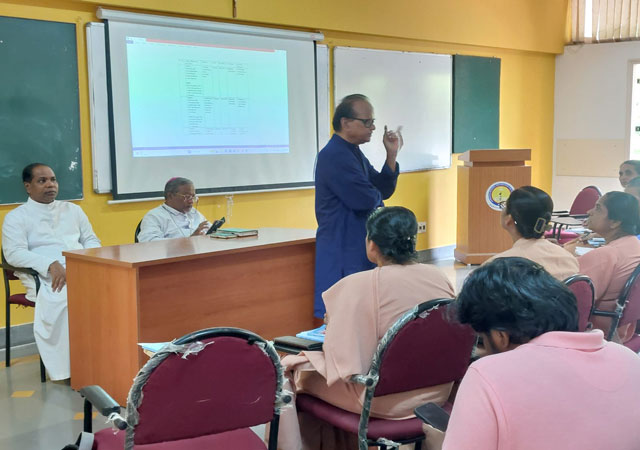Media Release
Bengaluru, Jun 21: In a significant step toward building a more inclusive church, diocesan secretaries for the commission for the differently-abled from across Karnataka gathered at Subodhana, the Regional Pastoral Centre in Bengaluru, on June 20.
The meeting focused on reviewing the implementation of the pastoral plan for the differently abled and exploring ways to deepen the church’s commitment to the spiritual and social integration of persons with disabilities.




The highlight of the meeting was the concluding address by Dr Peter Machado, archbishop of Bengaluru, who provided a deeply inspiring reflection on the church’s responsibility toward the differently abled. He outlined five core focus areas:
1. Pastoral and spiritual care – Encouraging parishes to make their spaces accessible, assist mobility to the church, and actively involve persons with disabilities in liturgical and community life.
2. Inclusive education and employment – Promoting inclusive education in church-run institutions and facilitating employment opportunities based on skill and dignity.
3. Support for parents, guardians, and catechists – Recognizing caregiver fatigue and the need for emotional and spiritual accompaniment, he suggested organizing retreats and support sessions.
4. Participation in social and public life – Emphasizing the responsibility of the whole community to ensure the differently abled are fully included in civic and church life, with active youth engagement.
5. Networking and collaboration – Calling for closer collaboration with other church commissions and civil society organizations to ensure a comprehensive and coordinated approach.
Earlier in the day, Estelle D’Souza, regional secretary for the commission, welcomed the participants and presented a brief overview of the journey so far. She later introduced the Action Plan Matrix, a structured roadmap designed to help dioceses implement the pastoral plan effectively at the grassroots level. Fr Anil Prasad, regional coordinator of KRPPIC. Fr Prasad laid out the vision and framework of the pastoral plan of KRCBC.
A key input session was led by Vijay Kant, a pioneering figure in the field of disability advocacy. He provided a detailed explanation of government schemes, disability rights laws, and welfare provisions, urging church leaders to engage more actively with public systems and policies to serve the needs of the differently abled.
The meeting also featured diocesan sharing, where each representative presented their current initiatives, challenges, and success stories. This exchange fostered a spirit of collaboration and offered a platform for mutual learning and encouragement.
Beginning with a reflective prayer, the one-day meeting brought together church leaders, pastoral workers, and advocates committed to ensuring that persons with disabilities are not merely accommodated but are welcomed, valued, and empowered in the life of the church. The event marked a renewed commitment to building a church that reflects the inclusive love of Christ.